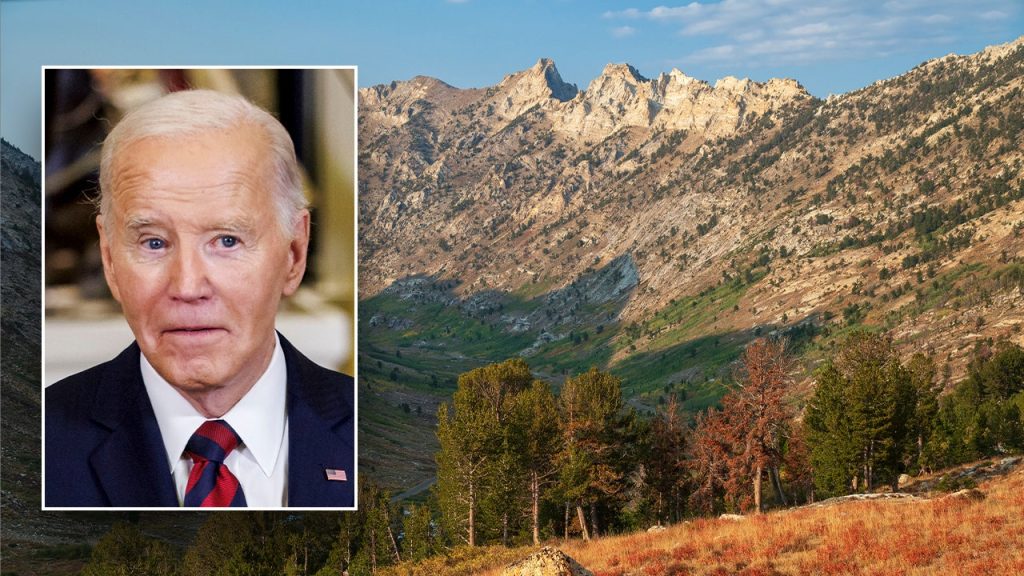The waning days of the Biden administration have been marked by a flurry of environmental actions, including a significant proposal to restrict oil and gas drilling in Nevada’s Ruby Mountains. This move, announced just weeks before the transition of power to the incoming Trump administration, seeks to protect nearly 264,000 acres of this ecologically sensitive area from potential future energy development. The administration’s proposal initiates a two-year moratorium on new mineral leases within the designated area while undergoing a formal review process, including a 90-day public comment period that will extend into the Trump administration’s tenure. This strategic timing places the onus of deciding the fate of the Ruby Mountains squarely on the shoulders of the incoming administration, effectively forcing their hand on a contentious environmental issue.
The proposed 20-year ban on oil and gas leases in the Ruby Mountains is rooted in the area’s ecological significance. Often referred to as the “Swiss Alps of Nevada,” the Ruby Mountains are renowned for their dramatic peaks, pristine alpine meadows, and abundant wildlife. They serve as a critical habitat for diverse species, including threatened and endangered ones, and provide invaluable recreational opportunities for hunting, fishing, hiking, and camping. The area also holds cultural and spiritual significance for several Native American tribes. The Biden administration’s proposal underscores the importance of safeguarding these natural and cultural treasures for future generations, emphasizing the long-term benefits of conservation over potential short-term economic gains from resource extraction.
The Biden administration’s decision has sparked immediate controversy, highlighting the longstanding tension between conservation efforts and energy development. While environmental groups and outdoor recreation enthusiasts have lauded the move as a crucial step to protect a beloved landscape, the energy industry has criticized it as a last-minute attempt to obstruct responsible resource development. This clash of perspectives reflects the ongoing debate over the balance between economic growth and environmental protection, a debate that is likely to intensify under the new administration. The energy industry argues that responsible energy development can coexist with environmental protection, while conservationists emphasize the irreversible damage that can be caused by resource extraction in sensitive ecosystems.
The Ruby Mountains have been the subject of previous attempts at oil and gas exploration, underscoring the long history of this conflict. During the first Trump administration, the Forest Service investigated the possibility of leasing 54,000 acres within the Ruby Mountains for drilling. This proposal faced strong public opposition, culminating in its rejection in 2019. Thousands of comments poured in from local communities, the state of Nevada, and across the nation, expressing concerns about the potential environmental impacts of drilling. Furthermore, geological surveys conducted in the area indicated low to no potential for oil reserves, raising questions about the economic viability of such ventures. This history of failed exploration attempts further strengthens the argument for permanent protection of the Ruby Mountains.
The Biden administration’s current proposal builds upon this history of conservation efforts, expanding the protected area significantly and strengthening the legal framework for its preservation. While the two-year moratorium and subsequent public comment period will fall under the jurisdiction of the Trump administration, the proposal’s long-term implications create a complex political landscape. The incoming administration will face pressure from both sides of the issue, with the energy industry advocating for resource development and environmental groups urging the continuation of conservation efforts. The final decision regarding the fate of the Ruby Mountains will serve as an early indicator of the new administration’s environmental priorities and its approach to balancing economic development with ecological protection.
The Ruby Mountains stand as a microcosm of the broader challenges facing public lands management in the United States. The competing demands of resource extraction, recreation, and conservation create a complex web of interests that require careful consideration. The Biden administration’s last-minute proposal underscores the urgency of addressing these issues and sets the stage for a crucial debate on the future of the Ruby Mountains and, more broadly, the balance between economic development and environmental stewardship in America’s public lands. The incoming administration’s response will not only determine the fate of this specific region but also signal its broader approach to environmental policy and its commitment to preserving America’s natural heritage.

